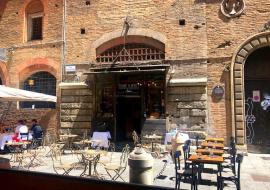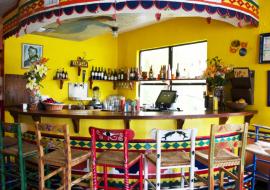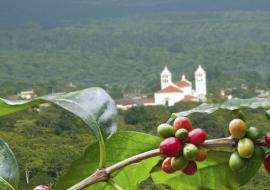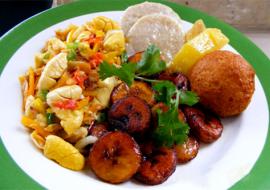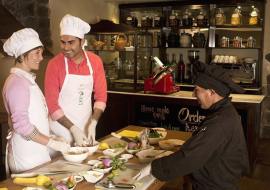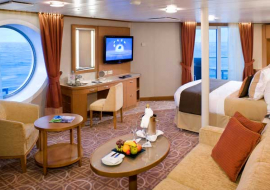The Coffee Route in El Salvador
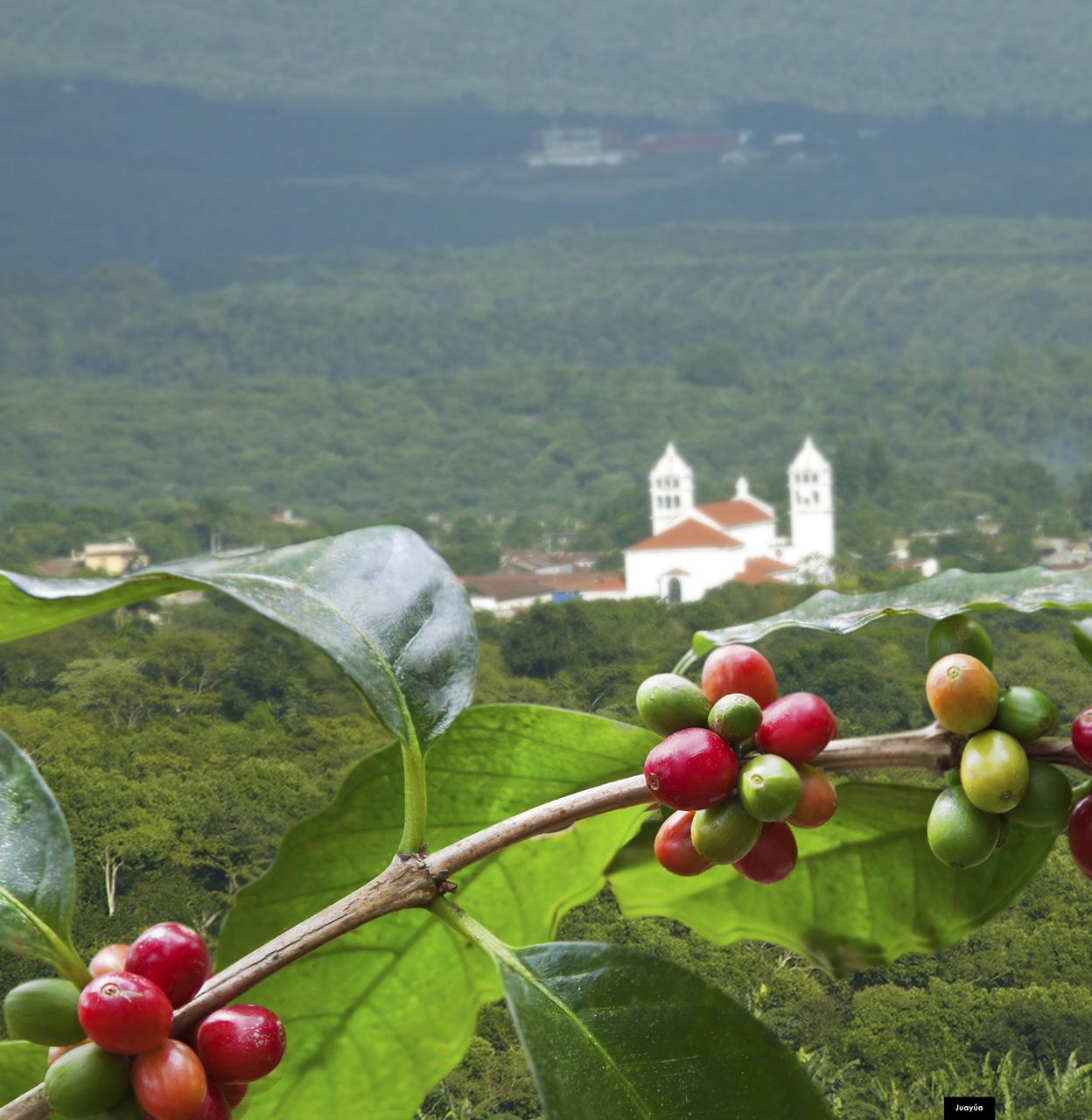
Talking about coffee production in El Salvador is talking about our roots and heritage. Due to the invaluable contribution in the strengthening of the economy and culture of the towns surrounding the coffee farms and estates, the cultivation of this valuable seed was, is, and will always be a symbol of the Salvadoran agricultural trade.
El Salvador’s history in general is characterized as changing in its cultural, commercial, productive, and service aspects. In this social and economic dynamic, the coffee industry has grown considerably since its inception in 1855; making our beloved country one of the leading coffee exporters and producers within the region.
Since the late 90s, the social, political, and economic development has generated levels of confidence on both foreign and domestic investors, which added to the work of our people and the effort of several communities, has made tourism, the fastest growing and more sustainable sector of the country. The cultivation of the coffee bean, with its considerable importance in the cultural and economic wealth of our country, has been key to this growth; and together with the hand of our people, who with their kindness and sympathy are always ready to provide high quality services to the visitors of our coffee forests, this trend will continue for years to come.
COFFEE MILL
Under these potential features, we have established a network of farms, estates, and areas closely linked to coffee production, to serve as service providers and vendors. Each of these farms receives proposals and recommendations for this second stage in the development of coffee tourism; this way, we are betting on the diversification of income sources and the social, cultural, and economic development of El Salvador.
The continuity of this institutional effort will help in the implementation and promotion of services and tourism products with the “Salvadoran Coffee Essence”. This, together with the commitment of local entrepreneurs, will favor the creation and improvement of infrastructure and services, which will help the country in providing an innovative, competitive, and attractive offer to the world.
“El Salvador, a blessed land for the germination and development of coffee, is facing a new tourist demand that is rising to the expectations of visitors that want to know about our culture through the coffee industry.”
After a good planting, there is a blessed legacy of a bountiful harvest, and in El Salvador, coffee is no exception. Introduced in the
COFFEE SELECTION
Country by former president Captain General Gerardo Barrios, the development and commercialization of the “Golden Grain” (as it was known back then) received a great impulse during his tenure.
The coffee industry in El Salvador had its beginnings in the eastern part of the country; the processing of 900 bags in one of its benefits allowed us the title of exporter. Now, it has become the 2nd worldwide largest export, only below oil. During 1998 and 2000, 6.7 million tons were processed yearly, reaching a production of up to 7 million tons in 2010.
To date, it is common to find between ridges and mountains, groups of nationals and foreigners enjoying the scenic setting that only our coffee forest can offer. Among them, businessmen from all around the world, which have been motivated to travel great distances to take back to their countries this fantastic drink.
From this perspective of work and leisure, we can appreciate the dynamic of how tourism products are innovated and diversified every day, reaching levels that meet the needs of travelers; in this case, those interested in the natural beauty, culture, and traditions linked to this crop. Farms and estates have the potential of developing as tourist attractions with their beautiful scenery, capacity for the practice of extreme sports, their biological diversity, and the cultural events and traditions that each particular place offers. Visitors will be able to enjoy either a mixture of all of the above or each one individually according to their taste.
The spaces offered in coffee forests allow linking them to a wide range of tourism options, such as agrotourism, ecotourism, ethnotourism, adventure tourism, extreme sports tourism, scientific studies tourism, coordinated with lodging, camping and a specialized tourist guidance. Phase II of the coffee route implementation reinforces the idea of a competitive strategy, aimed at the transformation and diversification of coffee culture, allied with tourism as an option for the creation of spaces and rescue of this important resource, without leaving aside the need for an adequate infrastructure improvement that will make this industry become an important economic development source.
The coffee forest in El Salvador is a historical and cultural heritage we are proud of; besides its environmental benefits, it has been a generator of life and has had a great importance in the development of the national economy.
In each one of this farms, people with an interest in learning and engaging with farming activities, can take part throughout the year.
From the reproduction in plant nurseries and the care needed for healthy and hardy plants, to their transplantation and management, the coffee plant allows us to be part of agricultural tillage. By fertilizing and doing soil conservation efforts for long term sustainability, along with pruning the coffee plant itself, on the arrival of each summer nature will give us this valuable seed.
From there the coffee benefits open their doorsfor the drying and grindingof the coffee seed,as well as a series of phases in which visitors can participate while learning about coffee and its process.
All of the steps in the coffee bean cultivation and management are executed in farm areas, which can also be combined with a number of leisure activities and extreme sports, such as hiking, wildlife observation, horseback riding, and other outdoor sports.
This farms and estates, due to their privileged location, also count with viewpoints on El Salvador’s magnificent hills and mountains, accompanied by a nice weather throughout the
COFFEE GROWING IN EL SALVADOR
The Coffee cultivation in El Salvador has stayed close to its values and historic traditions of production and processing, as well as the adoption of norms, techniques and technologies that aid in obtaining a better quality of its product.
For our country, Coffee continues to be an activity of great strategic importance for the economic, social and environmental sustainability, even though of a relative loss in the impact in economy favored by El Salvador’s evolution toward one of the free economies of the world which has permitted a reorganization of the productive sectors. Below are highlighted some aspects that reinforce the social economic importance of Coffee for El Salvador.
• Coffee has contributed to the Gross Domestic Product 1.2% average in the last 10 years and 10.0% to the Farming Gross Domestic Product. Due to the fact that national accounts do not include the agroindustry activity in the Farming GDP, the cited numbers do not reflect the true impact. In a study it was determined that the GDP of the farming sector increased from 13.3% to 22.8% when adjusted by its agroindustry contribution (number from 1997)
• Coffee exports represent around 5.0% of the country’s total exports, even when the diversification of exports and the decrease in the productivity of the coffee park have undermined the carrying out of the first. The average coffee activity between the years 1995 and 2012 represented a 7.5% of El Salvador’s total exports.
• Coffee under normal conditions contributes 100,000 direct jobs and close to 400,000 indirect jobs; injects resources in the rural area invigorating commerce and relieving rural poverty. For many years, coffee has contributed so that rural populations can have a more adequate living infrastructure, such as highways, schools, access to basic services, among others.
Employment creation on the part of the coffee area makes up, one of the main contributions of this sector to maintain the social and political stability of the country, considering that in normal conditions the use of the coffee sector represents close to 6% of the Economically Active Population (PEA) to this is added that the investment that produces said activity favors the development of micro businesses which contribute to reduce the migration of rural inhabitants toward the city and the problems that are implied.
Coffee is vital from an ecological viewpoint. The positive factors of coffee – even though very important – are not at this time justly paid, internally nor externally. While various country producers have changed their technologies to coffee cultivations under open sun that use great amounts of chemicals, El Salvador has maintained its traditional coffee cultivation under shade. Under this fan of shade trees, are found slowly matured Arabian coffees, of which an exceptional beverage is obtained. The latest field studies reveal that El Salvador counts with 4% of primary forests; coffee plantations represent approximately 7% of additional forest due to an intensive use of shade that the plantations possess – 95% of the plantations are cultivated under shade – more important still, almost all primary or closed forests (around 80%) are found surrounded by plantations, functioning as an area of impact mitigation that could receive said forests from the exterior. If the plantations disappear, the primary forests would be in danger of disappearing.
The coffee forest has for our country a great hydrological importance (see map), aside from providing other environmental services such as: serve as a source of energy, trap carbon and maintain biodiversity.
HYDROLOGICAL IMPORTANCE:
It may be the most important environmental service provided by the coffee park to our country. It protects the land against erosion, protects the main slopes of water basins and allows water infiltration to the water bearing layers. The map of hydrological divisions shows how the coffee fields are located mainly in areas of underground water, being a key figure in the recharging and becoming an oasis in the areas of reduced infiltration. According to data from PROCAFE each hour the coffee forest enriches the water bearing layers with 715m3 of water, of which 70% is maintained, in other words, every hour the plantations contribute to the water bearing layers 500.5m3 of water.
ADDITIONAL SOURCE OF ENERGY AND INCOME:
The pruning of shade trees and coffee trees are the main source of firewood to prepare food in rural areas of the country. It is estimated that it provides 42% of the total firewood used annually by the rural populations. Likewise, the milling process produces each year 6 million qq (quintal) of pulp and 0.7 million qq (quintal) of parchment husk, that due to its high combustion power it is a valuable energetic resource with which there is a saving of use of oil during the grain drying. In the farms, other products are cultivated such as fruits, vegetables, flowers and timber-yielding trees. These species are not only important to maintain biodiversity, but are also a source of additional income when they are rationally exploited. This diversification helps protect many times the producers from the price variations, natural events and other uncertainties.
CAPTURE OF CARBON:
The average of the different gradients and shade species of El Salvador’s mountain trees can maintain a reserve of 190 tons of carbon by hectare annually and the fixation net rate of carbon dioxide is 126 Kg. daily. The coffee plantations of El Salvador maintain a reserve of 32.2 million tons of carbon, with a fixation of 13,178 tons of carbon dioxide per day. These environmental services are not yet exploited in our country, representing a future opportunity of remuneration for this benevolent cultivation.
CONTRIBUTION TO THE BIODIVERSITY:
The use of areas of coffee under shade with native species in almost 110,000 Hectares (200,000 Manzanas) has permitted El Salvador to maintain a biodiversity in flora and fauna. In the areas of coffee forests there are 209 types of native trees and 21 exotic, 188 species of birds, 101 resident and 37 migratory (42 of these are endangered and 19 under danger of being extinct at local level); also 31 species of small mammals, 8 in danger of becoming extinct.
26 species of reptiles and 8 species of amphibians that possess various endangered species, among others. Thanks to the masses of permanent cultivations in the under shade coffee plantation areas, these could be kept out of danger and therefore reduce the danger of extinction. (Source Proyecto Café y Biodiversidad Procafe 2000)
HARVEST AND PROCESSING:
The harvest period in El Salvador begins in October in the low areas and extends until March in the areas of higher altitude. The most part is collected from the end of November until the beginning of January. The harvest is manual; the green grains are separated before sending the coffee to the coffee processing plant. The fresh cherries are transported the same day in which they are collected to then be pulped immediately and therefore prevent fermentation.
In El Salvador, coffee is processed by means of the wet mill, so the cherries must be selected in their optimum stage of maturity, when they show a bright red color. The producers specialize in the production until the harvest.
The delicate activities of milling are done by the mill owners, who are integrated starting from obtaining up to the export activity. These mill owners normally have a capacity of processing from 1,000 to 5,000 quintals daily (one quintal = 1 sack of 46 kg) of green coffee, volume that assures a homogenous product. The abundance of patios for drying and solar light let a significant amount of coffee to be sun dried. The harvest of coffee is normally concentrated in a three- month period, while exports extend the entire year.
VARIETIES OF COFFEE PRODUCED
El Salvador produces only Arabian coffee. The main varieties found are Bourbon, that consists of 68% of the total area of cultivated coffee in the country, Pacas (Salvadoran variety from a natural mutant of Bourbon) which represents 29%, and the remaining 3%
includes Pacamara (a Salvadoran hybrid resulting from a blend between Pacas and Maragogipe, with excellent cup properties) and other varieties of lesser amount such as Caturra, Catuai and Catisic.







